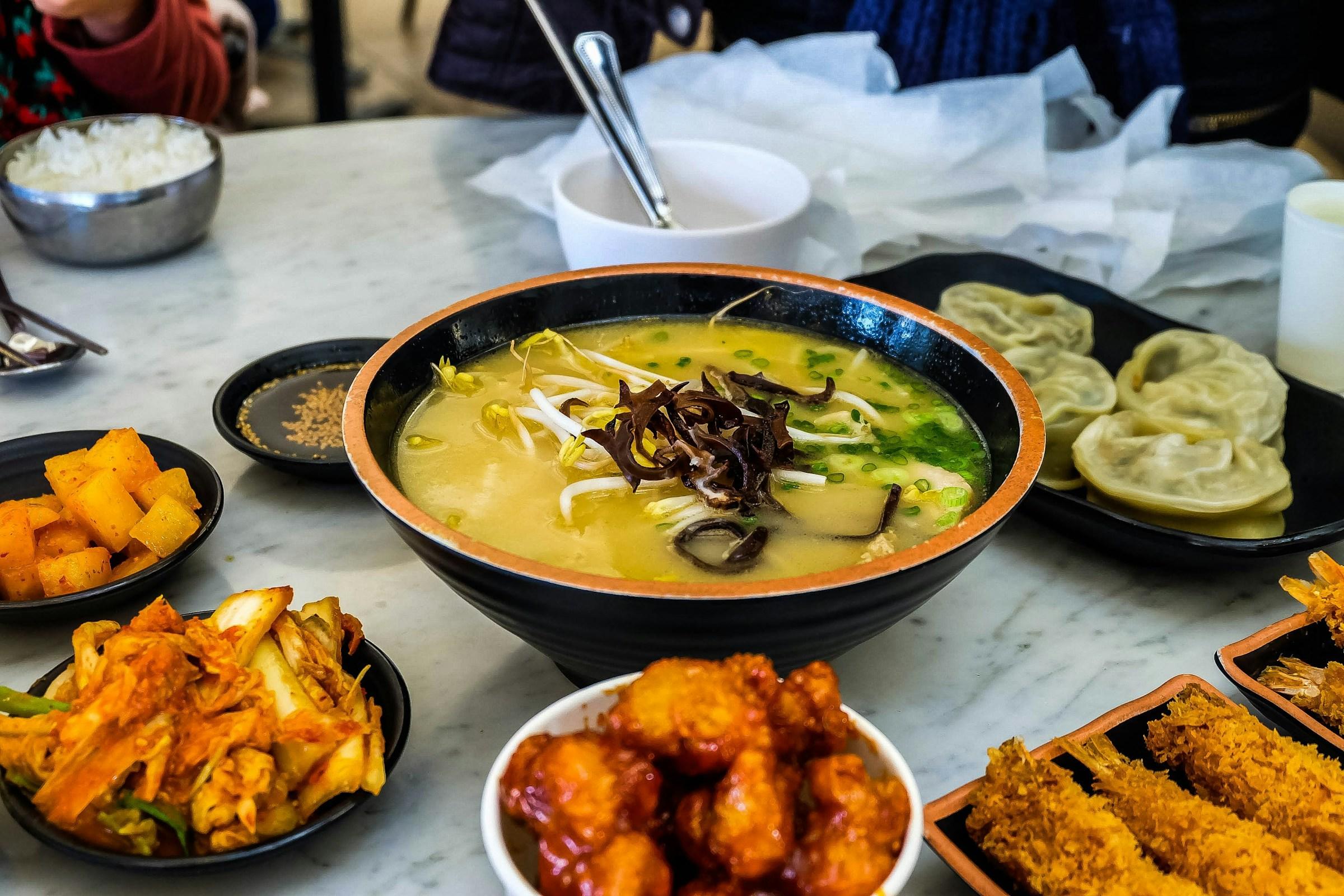Did you know that Korean is celebrated as one of the most meticulously designed languages in the world? This is all thanks to King Sejong, who crafted its unique alphabet, Hangul, back in the 15th century. This writing system comprises 14 consonants and ten vowels, making it really easy to learn and use. Hangul was created to help more people become literate, and it’s appreciated for being simple and user-friendly.
Learning the Korean language has become a norm at this point. The influence of popular K-pop groups like BTS, EXO and BLACKPINK has turned the world’s attention to not only the music but also the language. K-dramas are famous for their captivating plots and profound emotional impact, often motivating viewers to learn the Korean language and igniting a strong passion for the language.
As more people are exposed to Korean history and culture, the desire to learn the language has increased. Being able to understand the lyrics of their favourite song and the dialogues in captivating K-dramas without needing subtitles brings fans closer to the heart of Korean entertainment.

Why Learn Korean?
Are you curious about the reasons for learning Korean? You may have arrived here while contemplating whether to pursue the language. Allow us to assure you that you are in the right place.
Competitive Advantage in the Employment Industry
In today’s globalised world, employers are placing increasing importance on language proficiency within their workforce. Communicating in a foreign language is seen as a valuable skill and a worthwhile career investment. As businesses expand their reach across borders, acquiring foreign language proficiency can enhance job prospects and open up opportunities for professional growth.
South Korea, home to leading brands such as Samsung, Hyundai, and Kia, boasts a thriving economy globally and is recognised as one of the most technologically advanced nations. By learning Korean, you could potentially secure a position with one of the growing South Korean firms operating in the UK or even in Korea. At a minimum, this skill will enhance your job prospects.
Travel to Korea with Ease
If you are considering a future trip to Korea, it’s essential to understand that having a good command of the Korean language will significantly enrich your experience. By being proficient in Korean, you will be able to communicate directly with locals, removing the need to rely on translation apps or the English proficiency of the residents. This will allow you to engage more deeply with the culture and connect with people on a more personal level. To make the most of your upcoming journey, we highly recommend starting your Korean language learning journey now.

Gain a Better Understanding of Korean Culture
Many people opt to learn Korean for numerous reasons, one of which is their exposure to Korean cultural products like music, television shows, and films.
It’s possible that the series Crash Landing on You or the film The Wailing sparked your interest in Korean cinema. Perhaps a friend introduced you to artists like Jisoo, PSY, IU, or Seventeen, and you’re eager to learn the lyrics to their songs. Regardless of what aspect of Korean culture has captivated you, learning the Korean language will enable you to gain a deeper appreciation of your favourite Korean music and television series.
Furthermore, being skilled in Korean provides access to the realm of traditional Korean arts and culture, such as music, dance, and crafts. Involvement in these traditional art forms allows learners to better understand Korea’s rich cultural heritage and the lasting traditions that define Korean identity.
Basic Korean Words & Phrases
Learning basic Korean phrases and words is a great way to start learning the language, whether you want to learn it because you are interested in Korean culture or the entertainment industry.
Let’s dive into the exciting journey of language and culture at the heart of Korea, turning everyday moments into lasting memories!
Greetings
- Hello (formal) - Annyeonghaseyo
- Hello (informal) - Annyeong
- Hello (for phone call) - Yeoboseyo
Polite Expressions
- I’m sorry (formal) - Joesonghamnida
- I’m sorry (informal) - Mianhae
- Thank you (formal) - Gamsahamnida
- Thank you (informal) - Gomawo
- It’s okay (formal) - Gwaenchanayo
- It’s okay (informal) - Gwaenchana
- Excuse me (formal) - Jeogiyo
- Excuse me (informal) - Jeogi
Basic Questions
- What’s your name? - Ireumi mwoyeyo?
- How are you? - Jal jinaesseoyo?
- Where is the bathroom? - Hwajangsil eodieyo?
- What is this? - Igeo mwoyeyo?
- Where are you from? - Eodi chulsiniseyo?
Useful Phrases for Tourists
- Please help me - Dowajuseyo
- Do you speak English? - Yeongeo hal su isseoyo?
- How much is this? - Igeo eolmaeyo?
- Give me this, please - Igeo juseyo
- I can’t speak Korean - Hangukeo mothaeyo
- How far is it from here? - Yeogieseo eolmana geollineunji aseyo?
Cultural Expressions
Certain phrases in Korean culture are deeply ingrained and may not have exact equivalents in English. However, familiarising yourself with these expressions can offer valuable cultural insights.
- An expression of encouragement, similar to “You can do it!” or “Go for it!” - Hwaiting!
- Said before eating, meaning “I will eat well.” - Jal meokgetseumnida
Basic Korean Words
Because they frequently appear in Korean movies, dramas, and various forms of entertainment, beginner-friendly Korean words can be quickly learned. They are helpful as they are commonly used in everyday conversation. Below is a list of key Korean words:
- Yes - Ne/Ye
- No - Aniyo/Ani
- Maybe - Amado
- Yesterday - Eoje
- Today - Oneul
- Tomorrow - Nae-il
- Police station - Gyeong-chal-seo
- Bank - Eunhaeng
- Hospital - Byeong-won
- Cheers! - Geonbae!
- Always - Han-sang
- Unbelievable/Awesome - Day-bak
- Water - Mul
- Food - Eumsik
Understanding Honorifics and Respect in the Korean Language
If you are exposed to Korean culture by listening to K-pop songs, watching K-dramas or interacting with native Korean speakers, we are sure that you know that honorifics and respect are fundamental to learning the Korean language.
Politeness and social hierarchy are deeply embedded in the Korean language. Mastering the art of honorifics in this language is essential for showing respect based on age, status, or relationship with the person you’re addressing. Understanding and using this system effectively is crucial for clear and respectful communication in any setting, whether formal or informal.
Honorifics typically refer to language that shows respect towards the other person, often through specific terms of address. In contrast, Korean features not only distinct address terms to show respect to the listener but also a complex system of speech levels. This system includes ways to express humility, as well as methods to honour the subject, object, and complement within a sentence, in addition to respecting the listener.
Three key factors influence the selection of the level for each component:
- The differences in status between the participants
- The level of closeness or camaraderie between them
- The degree of formality in the communication context.
This system can be challenging to grasp, but for beginners, the key takeaway is to add “yo” at the end of verbs to ensure your speech is polite.
Tips to Speak Korean Like a Pro
Picking up a new language, such as Korean, may seem like a daunting challenge. Many believe that mastering a language requires relocating to its country of origin or spending countless hours immersed in textbooks, memorising vocabulary and grammar rules. However, travelling can be costly, and studying solely from books can become tedious. Here is a list of fantastic tips to help you learn and master Korean quickly!
Get a Firm Grasp of the Korean Alphabet
Learning the Korean writing system known as Hangul is essential for achieving fluency in spoken Korean.
Since translating Korean into the Roman alphabet can be challenging, the initial step in learning to speak Korean should be to familiarise yourself with reading Korean script. This will enhance your pronunciation and simplify the process of learning vocabulary and grammar, in addition to providing access to a broader range of Korean language-learning materials.
Build Vocabulary
After you have learned Hangul, you can begin expanding your vocabulary. It’s advisable to begin with numbers (as both Korean and Chinese numerals are used in Korea), the days of the week, and basic conversational phrases. After that, focus on words that are relevant to your specific reason for learning the language. For instance, if you’re learning Korean for an upcoming trip, concentrate on vocabulary related to directions and transportation.
Be sure to jot down the words in a notebook as you acquire new words. This practice will aid in your writing skills and help reinforce your memory. Your memorisation will be more effective if you visualise a picture or create a humorous story associated with the words.

Consistent Practice
Practice is critical to improving at anything. The same goes for speaking Korean like a pro. As you engage in practice consistently, you’ll notice that it becomes easier, eventually reaching a point where you can do it effortlessly. This happens because you start recognising your mistakes, prompting your brain to seek solutions to the challenges it encounters. Therefore, as you work on Korean grammar or any area of the language you find difficult, your brain will ultimately identify the simplest solution to your issue, leading to mastery of that particular aspect. Additionally, practising Korean daily will aid in quicker memorisation of words and phrases.
Hire a Private Tutor
While there is plenty of information online about learning the Korean language, one of the most effective methods is finding a private tutor. Working with someone who is fluent in Korean or a native speaker can be highly advantageous. This will not only enhance your vocabulary but also help you master the correct pronunciation of words.
If you’re interested in beginning your journey to learn the fundamentals of Korean, Superprof could be an excellent choice! This platform combines in-person and online learning to provide personalised guidance and support to students. It merges the advantages of a structured learning environment with the flexibility of online resources, thereby enriching the learning experience for both face-to-face and virtual classes.














